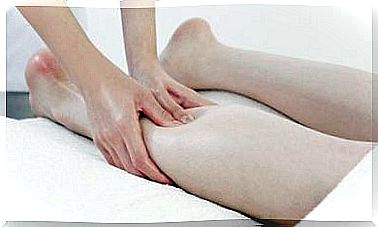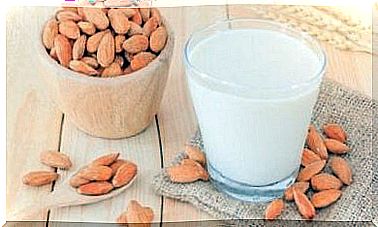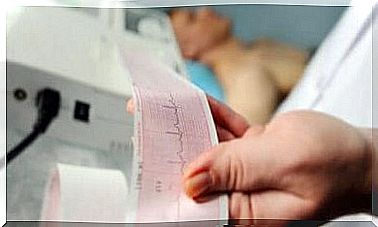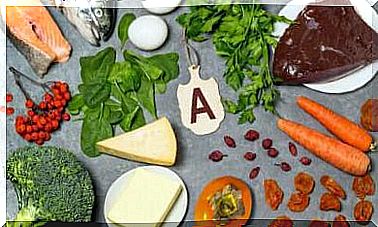Symptoms Of Gastroesophageal Reflux Disease
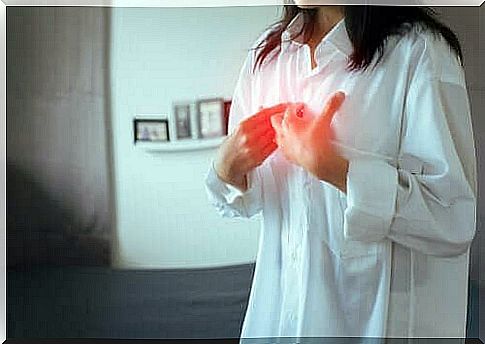
Gastroesophageal Reflux Disease (GORD) is characterized by the spontaneous return of stomach contents into the esophagus without an apparent cause.
On the other hand, physiological gastroesophageal reflux is mainly due to the temporary and spontaneous relaxation of the lower esophageal sphincter due to the distention of the stomach.
This condition significantly affects the quality of life of people who suffer from it. However, for it to be considered pathological, the symptoms must be quite intense.
Therefore, gastroesophageal reflux disease is generally a chronic condition with a good prognosis. In addition, the symptoms vary in intensity and are characterized by periodic periods of remission.
The Causes of Gastroesophageal Reflux Disease
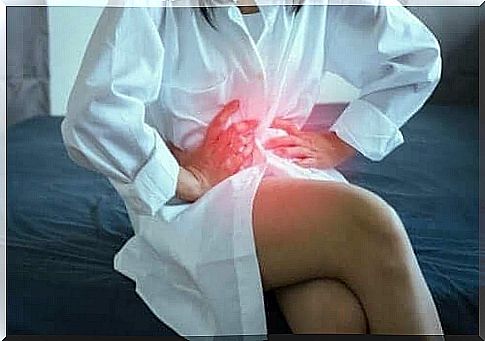
GERD occurs due to a defect in the sphincter, which normally prevents the rise of acidic gastric juices. Its manifestation depends on many factors. Other factors that promote gastroesophageal reflux disease include:
- esophageal motility
- mechanisms of the esophagus
- stomach contents
In many cases, gastoesophageal reflux is associated with hiatal hernia, or a diaphragmatic rupture. This is because this type of hernia promotes the occurrence of reflux.
Symptoms
Gastroesophageal reflux disease has many symptoms. The condition can range from the appearance of symptoms to the development of other problems such as an inflammation of the esophagus. Complications such as stenosis, an esophageal ulcer or Barrett’s esophagus can also occur, although this is less common.
The variation of symptoms depends on factors such as the duration of the episodes and the volume and aggressiveness of the backflowing juices. In addition, medical specialists should consider how long these substances have been in contact with the mucus of the esophagus. The most common symptoms include:
- Heartburn. This is the most characteristic symptom. It is a burning sensation that arises from the epigastrium.
- Heartburn. This is the most common symptom after that. This is the spontaneous flow of stomach contents into the mouth. This is promoted by certain postures of the body or by increased pressure on the abdomen.
- Central chest pain. This can be acute or sudden, caused by esophageal spasms. You can assume GERD is the cause of the pain when it’s related to food intake and not exercise.
- Dysphagia. This means that there are problems with swallowing.
- Odynophagia or pain when swallowing food. However, this is not a common symptom of gastroesophageal reflux disease. However, if it manifests itself, it may indicate the presence of esophagitis.
Typical symptoms of GERD have a high diagnostic reliability. The manifestation of these symptoms leads to an almost certain diagnosis and calls for treatment without the need for additional diagnostic tests such as an endoscopy.
However, if the patient shows troubling symptoms or does not respond to conventional treatment, further investigation should be performed. Usually a gastroscopy is performed.
Treatment of gastroesophageal reflux disease
The treatment of GERD is aimed at relieving symptoms and, if necessary, curing esophagitis. In addition, specialists treat and prevent possible other complications. The treatment options include:
- lifestyle adjustments.
- hygiene and dietary measures
- medicines
- in some extreme cases surgery
Lifestyle, hygiene and dietary measures

Lifestyle, hygiene and dietary measures should be adapted for each patient according to the risk factors that apply to him. However, the clinical response to the changes should also be taken into account.
A healthy diet is crucial for fighting gastroesophageal reflux disease. In general, it is advisable to eat lightly and avoid possible irritating products.
For example, it is advisable to stop smoking and to reduce alcohol consumption. Weight loss is recommended in overweight or obese patients. Another measure that can be implemented is raising the head of your bed. Doctors also recommend the following:
- Avoiding heavy meals, as it is better to consume more frequent, lighter meals.
- Investigate which products cause symptoms and avoid foods that cause symptoms.
- Spend enough time chewing food.
- Keep stress under control.
- Regular exercise.
Medicines
Medical treatment is based on the inhibition or neutralization of the secretion of gastric acid. Medical specialists prescribe these drugs to treat GERD if the patient does not have an inflamed esophagus.
- At the same time, antacids effectively and quickly reduce stomach acid.
- On the other hand, prokinetics are useful when regurgitation predominates. H2 blockers also produce a partial inhibition of gastric acid secretion.
- Proton pump inhibitors belong to the group of drugs commonly used for the treatment of GERD.
The latter drugs inhibit the secretion of gastric juices. They also relieve symptoms and control the likelihood of recurrence. They also help to heal the esophagitis that may have arisen.
Does this condition affect the quality of your life? As you have read, several factors can cause it or make it worse. However, there are many treatment options. Talk to your doctor to find out which treatment is best for you.

